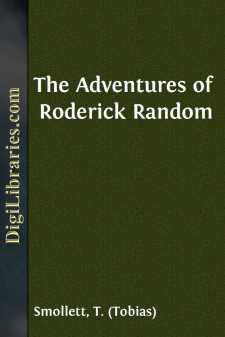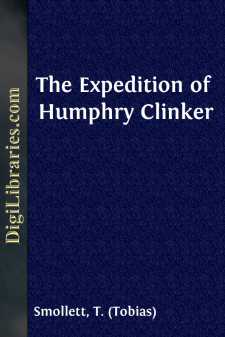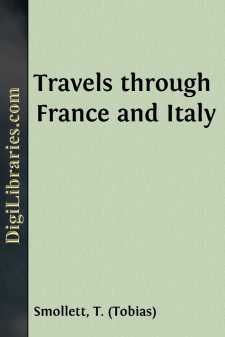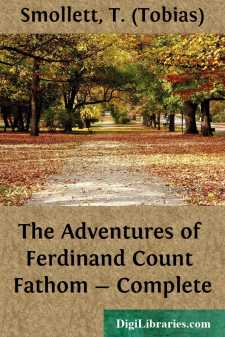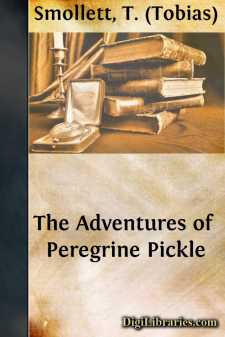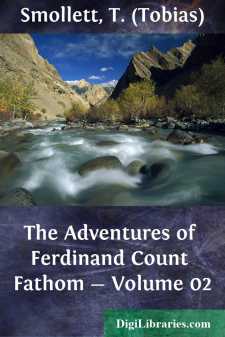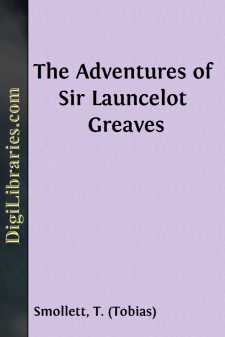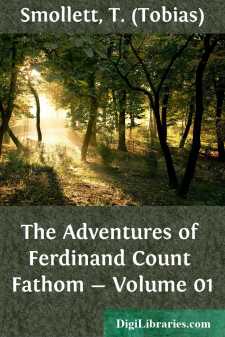Categories
- Antiques & Collectibles 13
- Architecture 36
- Art 48
- Bibles 22
- Biography & Autobiography 813
- Body, Mind & Spirit 142
- Business & Economics 28
- Children's Books 17
- Children's Fiction 14
- Computers 4
- Cooking 94
- Crafts & Hobbies 4
- Drama 346
- Education 46
- Family & Relationships 57
- Fiction 11829
- Games 19
- Gardening 17
- Health & Fitness 34
- History 1377
- House & Home 1
- Humor 147
- Juvenile Fiction 1873
- Juvenile Nonfiction 202
- Language Arts & Disciplines 88
- Law 16
- Literary Collections 686
- Literary Criticism 179
- Mathematics 13
- Medical 41
- Music 40
- Nature 179
- Non-Classifiable 1768
- Performing Arts 7
- Periodicals 1453
- Philosophy 64
- Photography 2
- Poetry 896
- Political Science 203
- Psychology 42
- Reference 154
- Religion 513
- Science 126
- Self-Help 84
- Social Science 81
- Sports & Recreation 34
- Study Aids 3
- Technology & Engineering 59
- Transportation 23
- Travel 463
- True Crime 29
The Adventures of Roderick Random
Description:
Excerpt
Of all kinds of satire, there is none so entertaining and universally improving, as that which is introduced, as it were occasionally, in the course of an interesting story, which brings every incident home to life, and by representing familiar scenes in an uncommon and amusing point of view, invests them with all the graces of novelty, while nature is appealed to in every particular. The reader gratifies his curiosity in pursuing the adventures of a person in whose favour he is prepossessed; he espouses his cause, he sympathises with him in his distress, his indignation is heated against the authors of his calamity: the humane passions are inflamed; the contrast between dejected virtue and insulting vice appears with greater aggravation, and every impression having a double force on the imagination, the memory retains the circumstance, and the heart improves by the example. The attention is not tired with a bare catalogue of characters, but agreeably diverted with all the variety of invention; and the vicissitudes of life appear in their peculiar circumstances, opening an ample field for wit and humour.
Romance, no doubt, owes its origin to ignorance, vanity, and superstition. In the dark ages of the World, when a man had rendered himself famous for wisdom or valour, his family and adherents availed themselves of his superior qualities, magnified his virtues, and represented his character and person as sacred and supernatural. The vulgar easily swallowed the bait, implored his protection, and yielded the tribute of homage and praise, even to adoration; his exploits were handed down to posterity with a thousand exaggerations; they were repeated as incitements to virtue; divine honours were paid, and altars erected to his memory, for the encouragement of those who attempted to imitate his example; and hence arose the heathen mythology, which is no other than a collection of extravagant romances. As learning advanced, and genius received cultivation, these stories were embellished with the graces of poetry, that they might the better recommend themselves to the attention; they were sung in public, at festivals, for the instruction and delight of the audience; and rehearsed before battle, as incentives to deeds of glory. Thus tragedy and the epic muse were born, and, in the progress of taste, arrived at perfection. It is no wonder that the ancients could not relish a fable in prose, after they had seen so many remarkable events celebrated in verse by their best poets; we therefore find no romance among them during the era of their excellence, unless the Cyropaedia of Xenophon may be so called; and it was not till arts and sciences began to revive after the irruption of the barbarians into Europe, that anything of this kind appeared. But when the minds of men were debauched by the imposition of priestcraft to the most absurd pitch of credulity, the authors of romance arose, and losing sight of probability, filled their performances with the most monstrous hyperboles. If they could not equal the ancient poets in point of genius they were resolved to excel them in fiction, and apply to the wonder, rather than the judgment, of their readers. Accordingly, they brought necromancy to their aid, and instead of supporting the character of their heroes by dignity of sentiment and practice, distinguished them by their bodily strength, activity, and extravagance of behaviour. Although nothing could be more ludicrous and unnatural than the figures they drew, they did not want patrons and admirers; and the world actually began to be infected with the spirit of knight-errantry, when Cervantes, by an inimitable piece of ridicule, reformed the taste of mankind, representing chivalry in the right point of view, and converting romance to purposes far more useful and entertaining, by making it assume the sock, and point out the follies of ordinary life.
The same method has been practised by other Spanish and French authors, and by none more successfully than by Monsieur Le Sage, who, in his Adventures of Gil Blas, has described the knavery and foibles of life, with infinite humour and sagacity....


